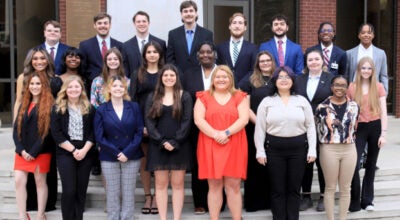Social media makes us gullible, hateful
Published 6:28 pm Saturday, July 30, 2016
I’m worried about the future of our country, and it has nothing to do with the upcoming presidential election. Well, not exactly. I’m worried about that, too, but my concern here is about something bigger, more important, something that makes me sad and I think threatens to take us back to a time we don’t need to revisit.
I’m worried about the way we treat each other — the hateful, nasty things we say to each other and about each other. It’s out of control on social media. Unfortunately, the nastiness, meanness, the division doesn’t stay there, but is spilling over into “real life,” into our community.
Are we not better than this? Has it really always been this way? Or have the relative anonymity provided to users of social media and the complete loss of any type of journalistic integrity caused this issue to blossom out of control?
In a meeting on Tuesday of The Vicksburg Post’s Reader Advisory Group, one of our advisors commented, “I get almost all of my news from social media.” In today’s digital world, that’s the case for many. It’s true for me, too.
However, increasingly, the horrible rhetoric on social media is turning me off.
Back in the day, journalists worked to present both sides of an issue and made certain facts and figures presented were accurate. That’s what many mainstream journalists, particularly in print media and associated websites, still work to do. Certainly, our staffers and I give our opinions in columns on our Opinion page, but when reporters and I work a news story, we go to great lengths to make certain no bias creeps in.
The problem is on social media, anyone’s a journalist, and what we’re seeing as “news” is not news at all, but is marketing material designed to skew opinion in one direction or another. And it’s not just one group or political party doing it.
Let me give you an example.
A day or so before the Republican National Convention in Cleveland began, a liberal website shared on Facebook a story about the RNC officials scrambling to take down a “whites only” sign someone put up in preparation for the convention.
As written, that story was a complete fabrication. I know it’s a complete fabrication because I found it so outrageous, I researched it. Come to find out, the liberal website had used a photo from the Cleveland arena, which pointed a way to the “white” elevator, which took those in the arena to the “white” section of seats, as opposed to the blue section, or the red section or the yellow section. That sign had been up for years, and had nothing to do with race.
But in an effort to inflame, that website exploited the sign and simply made up a story. They were betting the millions of Facebook users who would see it wouldn’t question its accuracy, would simply believe it, share it and further enrage others.
One of my Facebook friends the same week shared a conservative item with a big photo of Hillary Clinton and a supposed quote attributed to her seeking to dissolve the NRA and ban all guns in America. That quote was attributed to a national newspaper, even gave a date the story supposedly published. Guess what. No such story. No such quote. Ever. Anywhere.
But the damage was done. How many Hillary haters instantly believed it, ate it up, shared it with their friends, further perpetuating the lie.
How strong is your position if you have to make things up about the people you think are opponents? That’s what’s happening. And we’re making important decisions, all of us, based on inaccurate information, even outright lies.
Study after study shows users of social media instantly believe those things they see that conform to their opinions, dismiss those things that do not. They do nothing to check the accuracy or validity of a “story” before they “share” it, passing it on to others.
I have seen some blood-curdling, distinctly non-Christian comments from Facebook friends of mine who sit in a church pew every Sunday morning without fail. It’s mind-boggling. That’s how angry we all become when we spend time on social media.
One of the things that keeps me hopeful are groups like Mission Mississippi, which works to bring us together in a room, meet each other and listen to each other. When we do that, we discover we’re not so divided after all. We have more in common than we imagined, and we are more likely to be able to accept each other’s differences and respect each other, maybe even help each other and come to love one another.
But when we spend hours a day staring at our mobile phone at social media, being deluged by “news items” meant only to instill fear, divide and conquer, I fear for our future. Social media has made us gullible, lazy and hateful.
Many blame “the media” for our problems today. I blame social media. There’s a big difference. Time will show us the consequences.
Jan Griffey is editor of The Vicksburg Post. Readers are invited to submit their opinions for publication. You may reach her at jan.griffey@vicksburgpost.com or 601-636-4545, ext. 123.





